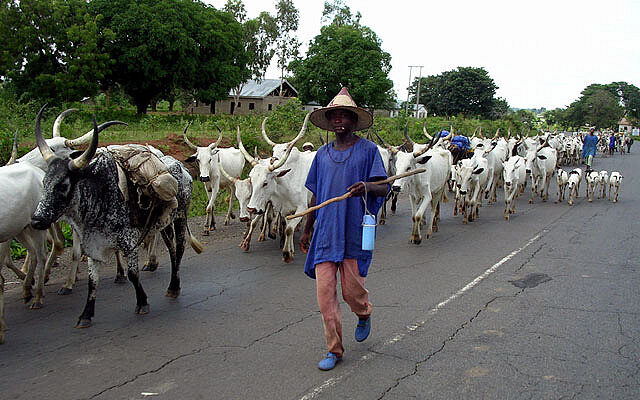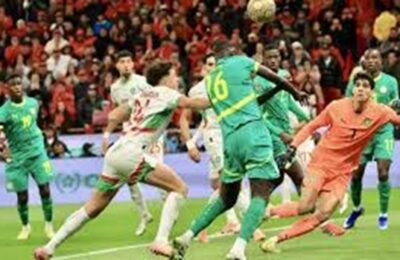Dear Fulani brothers and fathers,
What happened to you?
You were the quiet kings of the forest path, the gentle footmen of dawn who rose before the sun to lead cattle across rivers and grass. You were our fathers’ friends, our mothers’ traders, the ones who brought meat when there was none and stories when there was silence. You lived lightly on the land. You spoke few words but kept many friendships.
Now we wake up to new names for you—bandit, killer, rapist, terrorist. And we weep. Because we know… this is not who you are. Or is it?
Yesterday, with so much hunger in my belly, I found myself at Oforachi market in Igalamela-Odolu, Kogi State. There’s a bush restaurant there, hidden behind the market dust—a friend had discovered it. When I entered, to my astonishment, it was Fulani men who welcomed me. They were eating rice and meat, talking gently in their tongue. One greeted me and offered me his spoon. After I ate, I stepped outside. I saw more Fulani men buying fried yam from an Igala woman. No fear. No tension. Just hunger meeting hospitality.
Go to Kano Road in Idah, still in Kogi, and you’ll find Fulani, Igala, Hausa, Igbo, and Edo men barbing each other’s hair, sitting under trees, trading kola and stories. Their children play together, not knowing that their surnames are at war. Their elders sit quietly, skin burnt by decades under the Nigerian sun, faces carved by years of struggle—but still they smile.
Some of these Fulani men have married our sisters. Their children speak Igala, Hausa, and English with the same breath. And in the communities they inhabit, theft is almost nonexistent. You can leave your car or machine unlocked for days and come back to find it untouched. These Fulani are not killers. These are men who remember their roots. These are men who remember God.
But then I remember Keffi. I remember the pain. I remember how quickly memory can be replaced by fear.
When the Federal Government posted me under Npower (N-Health) to Bagaji, a Hausa/Fulani and Eggon community in Nasarawa State, I often walked the bush paths to ease my mind. One day, I strayed near a Fulani settlement by a water area. The women saw me first. I heard one scream, “Barawo shanu!”—cow thief. The boys came next. I tried to explain, but I had no Fulani, no Hausa, just fear in my voice and sweat on my neck. They beat me. They beat me with the rage of a people convinced that I came to harm them.
But amid the chaos, salvation appeared. Some of the adults-, unsure—stepped in to protect me. Then an old Fulani man arrived. His white beard trembled with anger—not at me, but at the injustice he saw. He fought off the attackers. He wrapped his arms around me, pulled me behind him like I was his son. And with stern words and soft eyes, he led me to safety. That man did not know my name, but he gave me life. The following week, some who came to the Primary Health Care Center, Bagaji saw me and they were apologising.
Dear Fulani fathers, what will your legacy be? Will it be the old man of Keffi or the boy with a blade? Will it be the one who offers a spoon—or the one who steals a soul?
The Nigeria of today is bleeding, and some say it bleeds from your knife. If you are not the one cutting, why are you silent while others use your face to kill?
Bishop Matthew Kukah said, “When those who should be the conscience of a nation fall asleep, evil multiplies.” Hajiya Bilkisu Yusuf, one of your own, warned us: “A good name is better than stolen land. The Fulani must not trade dignity for dominance.” And Alhaji Aminu Dantata once confessed, “We Fulani have survived everything but pride. Now it may destroy us.”
This is not just a political issue. This is spiritual. This is ancestral. And the earth is watching. The heavens are not blind.
The Igala people say, “A man who throws fire into the wind should not be surprised when his roof catches flame.” If the young Fulani grow up believing that blood is a shortcut to survival, then not even the cows will be safe. You may win the land, but you will lose your soul on the last day of Judgement.
Speak, dear Fulani fathers. Speak now. Before history closes its ears. Speak louder than the gunshots. Let the peace of Oforachi rise and drown the violence in Zamfara. Let the barber on Kano Road silence the killer in Sokoto. Let the one who saved me in Keffi teach your boys that honour is mightier than hate.
Because the world is watching. And the story of your people is being written in blood and in silence.
Choose memory over mayhem. Choose peace over pride. Choose to be human again.
With tears, and with trembling hope,
A Broken Son of Nigeria
– Inah Boniface Ocholi writes from Ayah – Igalamela/Odolu LGA, Kogi state.
08152094428 (SMS Only)




